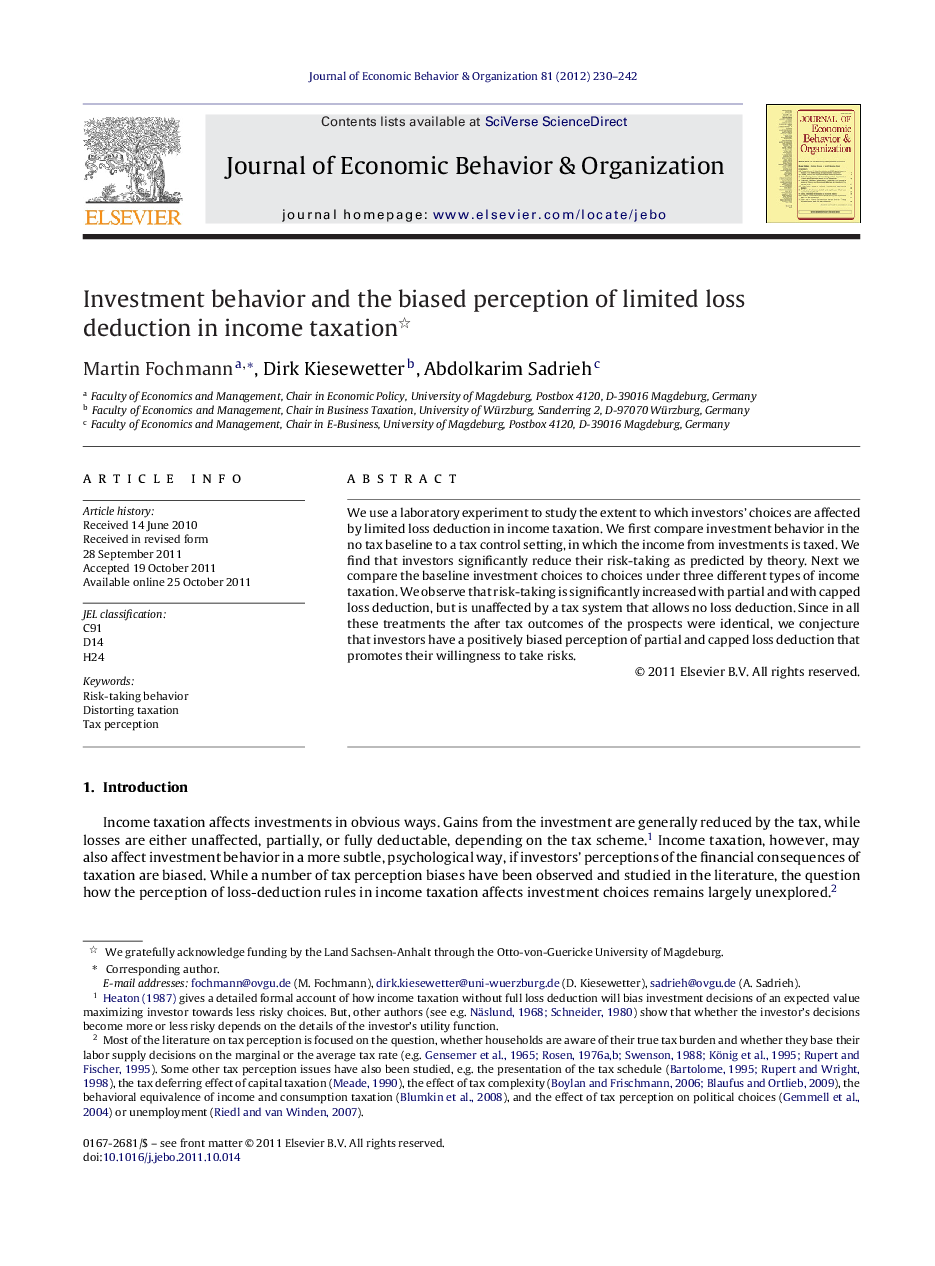| Article ID | Journal | Published Year | Pages | File Type |
|---|---|---|---|---|
| 883816 | Journal of Economic Behavior & Organization | 2012 | 13 Pages |
We use a laboratory experiment to study the extent to which investors’ choices are affected by limited loss deduction in income taxation. We first compare investment behavior in the no tax baseline to a tax control setting, in which the income from investments is taxed. We find that investors significantly reduce their risk-taking as predicted by theory. Next we compare the baseline investment choices to choices under three different types of income taxation. We observe that risk-taking is significantly increased with partial and with capped loss deduction, but is unaffected by a tax system that allows no loss deduction. Since in all these treatments the after tax outcomes of the prospects were identical, we conjecture that investors have a positively biased perception of partial and capped loss deduction that promotes their willingness to take risks.
► We study how investors’ choices are affected by loss deduction in income taxation. ► Even though after-tax outcomes are identical, decisions differ across treatments. ► Partial and capped loss deduction increase risk-taking significantly. ► A tax system without loss deduction does not alter risk-taking significantly. ► Investors have a positively biased perception of loss deduction provision.
